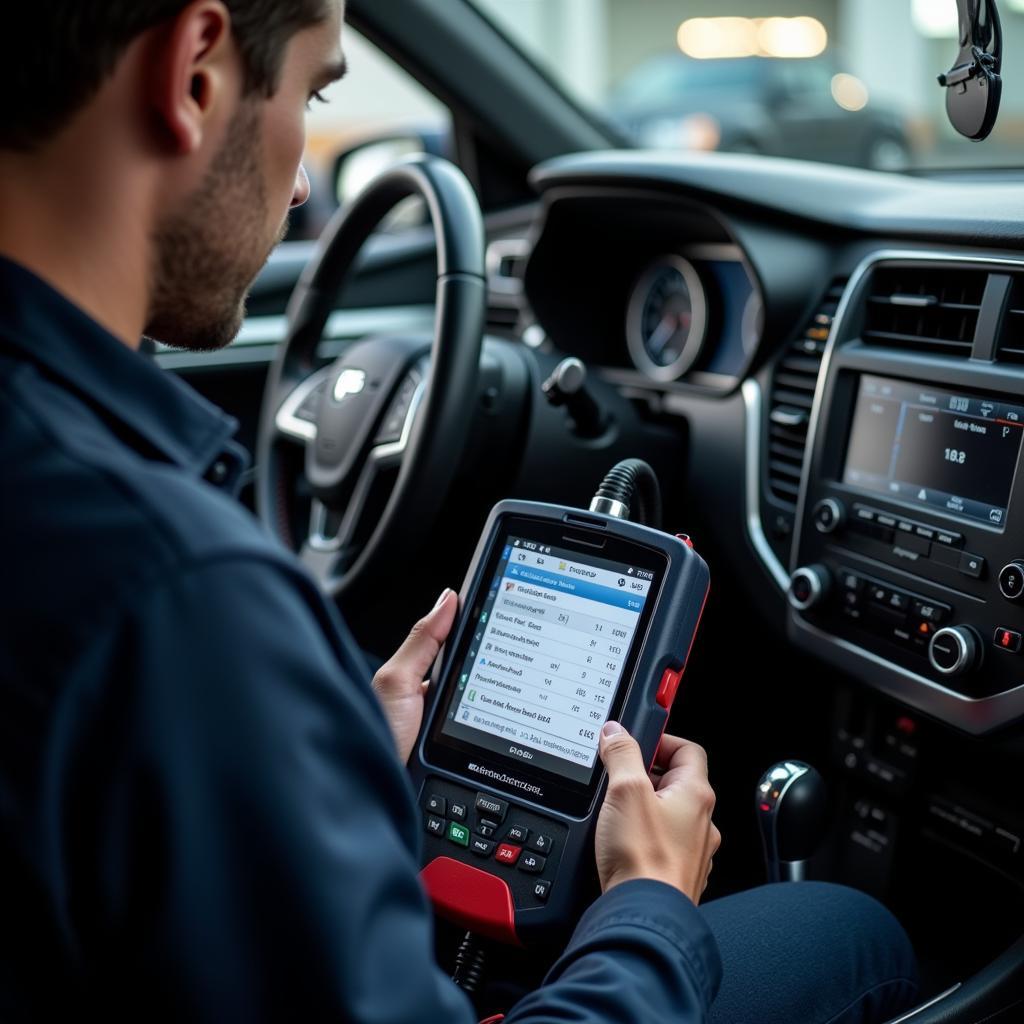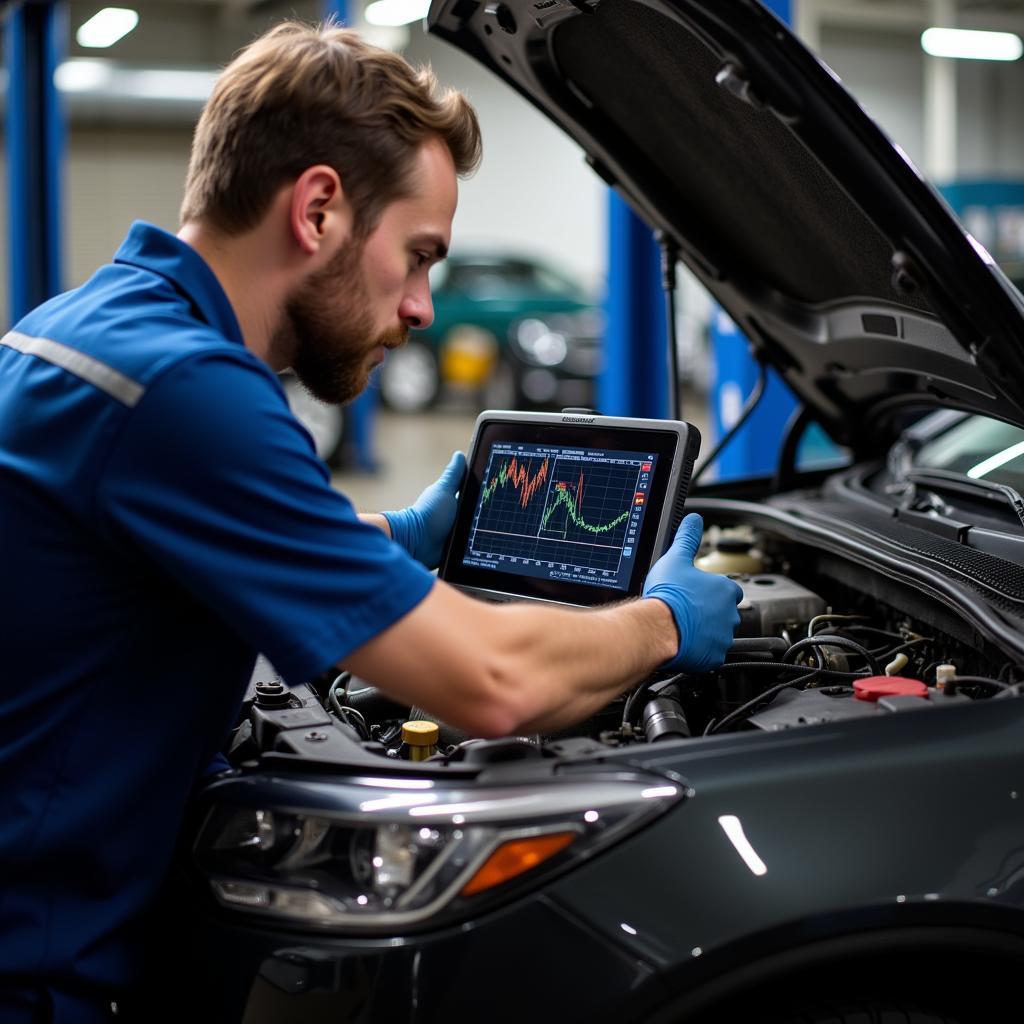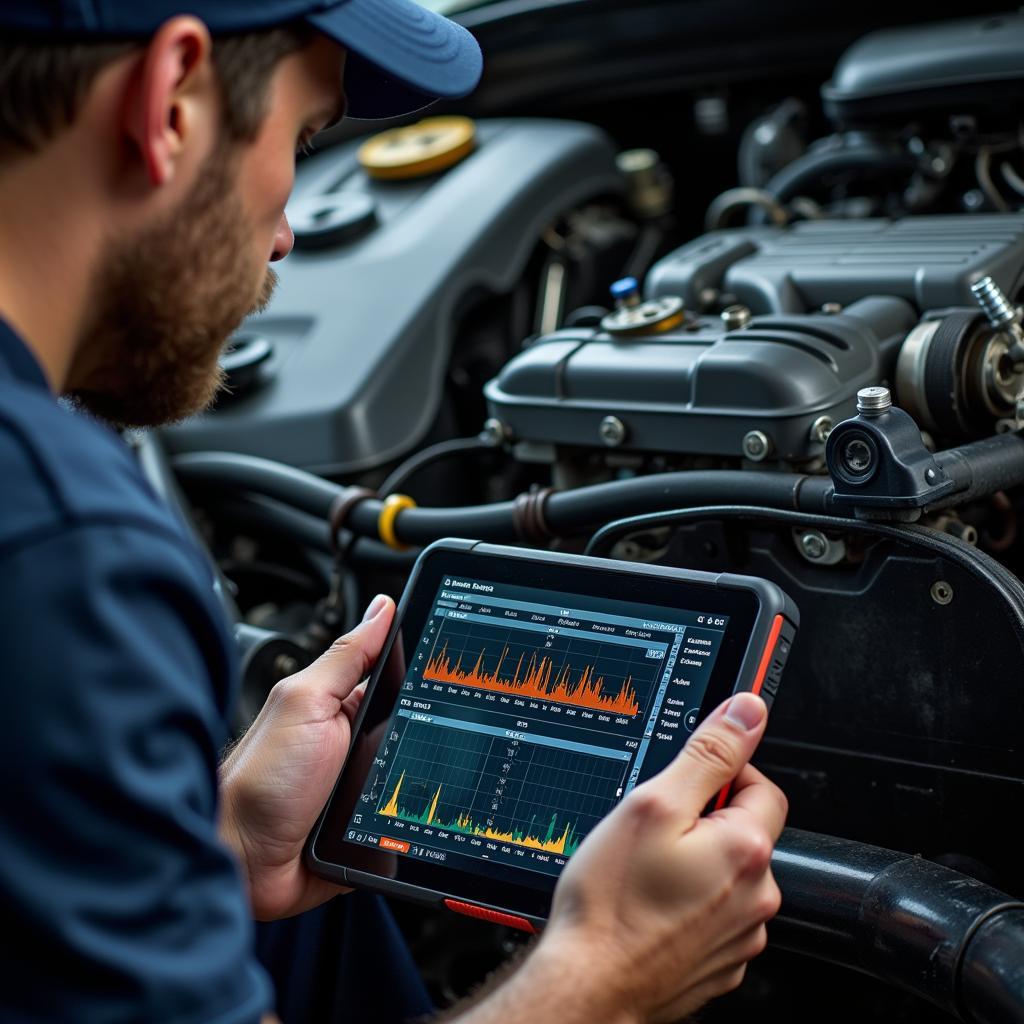Finding the perfect car diagnostic tool can feel like searching for a needle in a haystack, especially with so many options flooding the market. Whether you’re a seasoned mechanic or a car enthusiast looking to troubleshoot your vehicle, choosing the right diagnostic tool is crucial. This comprehensive guide will delve into the factors to consider when selecting the “best” diagnostic tool for your needs.
Understanding Your Needs
Before diving into the world of car diagnostic tools, it’s essential to define your specific requirements. Ask yourself these key questions:
- What types of vehicles do you work on? Are you primarily dealing with a specific car make, or do you need a tool that covers a wide range of vehicles?
- What is your budget? Diagnostic tools can range from affordable DIY options to professional-grade systems with hefty price tags.
- What is your skill level? Some tools offer basic code reading capabilities, while others provide advanced features like live data streaming and module coding.
 Best Car Diagnostic Tools
Best Car Diagnostic Tools
Types of Diagnostic Tools
Car diagnostic tools have evolved significantly over the years, offering a diverse range of functionalities and complexities. Here are the most common types:
1. Code Readers
Code readers are the most basic type of diagnostic tool. They can read and clear basic Diagnostic Trouble Codes (DTCs) stored in your vehicle’s Engine Control Unit (ECU). These tools are relatively inexpensive and suitable for DIYers who want to understand the cause of a “Check Engine” light.
2. OBD-II Scanners
OBD-II scanners offer a step up from basic code readers. They provide more detailed information about DTCs, including freeze frame data and manufacturer-specific codes. Many OBD-II scanners also offer live data streaming, allowing you to monitor engine parameters in real-time.
3. Professional-Grade Scan Tools
For professional mechanics and serious car enthusiasts, professional-grade scan tools are the gold standard. These tools boast a comprehensive suite of features, including:
- Bi-directional control: This allows you to command specific components, such as turning on the fuel pump or activating solenoids, to test their functionality.
- Module coding: This enables you to program and configure various modules in your vehicle, like the airbag control module or the transmission control module.
- Advanced diagnostics: Professional tools often provide access to manufacturer-specific diagnostics and troubleshooting procedures.
 Professional Mechanic Using Scan Tool
Professional Mechanic Using Scan Tool
Key Features to Consider
With a basic understanding of the different types of tools, let’s explore the essential features that differentiate them:
1. Vehicle Coverage
Ensure the tool you choose is compatible with the make, model, and year of your vehicle or the vehicles you work on regularly. Some tools specialize in specific car makes, while others offer broader coverage.
2. Software Updates
Car manufacturers constantly update their software and diagnostic protocols. Opt for a tool that offers regular software updates to ensure compatibility with the latest vehicles and technologies. Some manufacturers may charge a subscription fee for software updates.
3. User Interface
A user-friendly interface is crucial, especially for beginners. Look for tools with intuitive menus, clear navigation, and easy-to-understand data displays.
4. Data Logging and Reporting
If you need to track diagnostic data over time or generate reports, consider a tool with data logging and reporting capabilities. This can be particularly helpful for intermittent issues or when sharing diagnostic information with others.
 Mechanic Reviewing Diagnostic Data
Mechanic Reviewing Diagnostic Data
The “Best” is Subjective
The truth is, there’s no single “best” car diagnostic tool that fits everyone’s needs. The ideal tool depends on your specific requirements, budget, and skill level. What matters most is finding a tool that provides the features and functionalities you need to diagnose and troubleshoot your vehicles effectively.
FAQs
Q: Can I update a car diagnostic tool?
A: Yes, most modern car diagnostic tools can be updated to ensure compatibility with the latest vehicle models and software. You can learn more about updating car diagnostic tools here.
Q: How long does a diagnostic test for a car take?
A: The duration of a car diagnostic test can vary depending on the complexity of the issue and the capabilities of the tool being used. Find out more about the typical timeframe for car diagnostic tests here.
Need More Help?
Choosing the right car diagnostic tool can be a significant investment. If you have any further questions or need assistance selecting the best option for your needs, our team of experts is here to help. Contact us via WhatsApp at +1(641)206-8880 or email us at [email protected]. We offer 24/7 customer support to address your queries and guide you through the selection process.

Leave a Reply